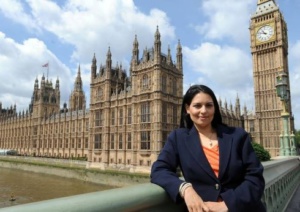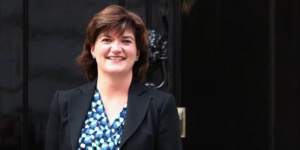What will we get from this new Conservative Cabinet?
With the dust now settling following this year’s election, it is beginning to appear that the defining issue of the next five years will be determining the UK’s future within the European Union. Certainly, looking at the press coverage of all-things-electoral over the past few weeks, this topic has stood at the forefront of debate. And as I opined in my last post, we must hope that come 2016 the public votes thoughtfully for the sake of our small businesses and wider economic welfare. But what will the other priorities of our new government prove to be? After all, despite a number of familiar faces, this government is very different to that which preceded it. Most obviously there are no longer any Liberal Democrat ministers to temper Conservative plans, whilst the inclusion of a greater number of female and state-educated ministers has also altered the make-up of the cabinet – perhaps partially in an attempt to dispel the party’s ‘public schoolboy’ stereotype.
Priti Patel, the new employment minister, is one such new female appointment. A figure that has been criticised in recent interviews for the views on capital punishment she espoused on Question Time back in 2011, Patel will first be tasked with working on the new Employment Bill. This bill will look to create two million jobs and three million apprenticeships over the government’s five year term. It need not be said that this is a highly ambitious target, and criticism has already been raised regarding the ability of this bill to target youth unemployment effectively; two-thirds of the apprenticeships taken between 2009 and 2014 went to those over 25.
Patel’s work will complement that of ex-leader Iain Duncan Smith, who takes the helm of the Department for Work and Pensions. The Conservatives plan to pay for the Employment Bill by reducing the benefit cap from £26,000 to £23,000 and changing the regulations surrounding the ability of school leavers to seek benefits. These cuts will form the bedrock of the £12 billion that Duncan-Smith has been asked to excise from public spending on welfare, with George Osborne aiming to balance the budget by 2018/19. As The Guardian explains, “clamping down on the welfare culture and enabling people to get in to work is key to the blue-collar message” that the Conservatives wish to disseminate.
Whether the benefits reaped from the government’s employment drive will outweigh the damage wrought by cuts remains to be seen. But with food banks distributing enough food to feed over one million people for three days in 2014/15, up from from 41,000 people in 2009/10, there is much at stake in this gamble for many.
Rather less contentious are the government’s commendable plans to develop existing childcare legislation. Indeed, these plans to double the amount of free childcare provided to working families have already been earmarked for ‘fast-tracking’ through parliament, and will form another pillar of the “blue-collar message.”
Change will also find its way to the UK’s school system under the reinstated Nicky Morgan. The free-school system pioneered by the last government is set to be continued, whilst greater powers will be given to schools to force out underperforming head teachers. Yet the lack of a stated strategy to deal with the additional 500,000 children expected to go through the UK school system during this period of budget cuts clearly leaves questions unanswered.
Whilst it’s the EU referendum has been holding headlines then, it’s clear that there’ll be much more to talk about in the next five years.

